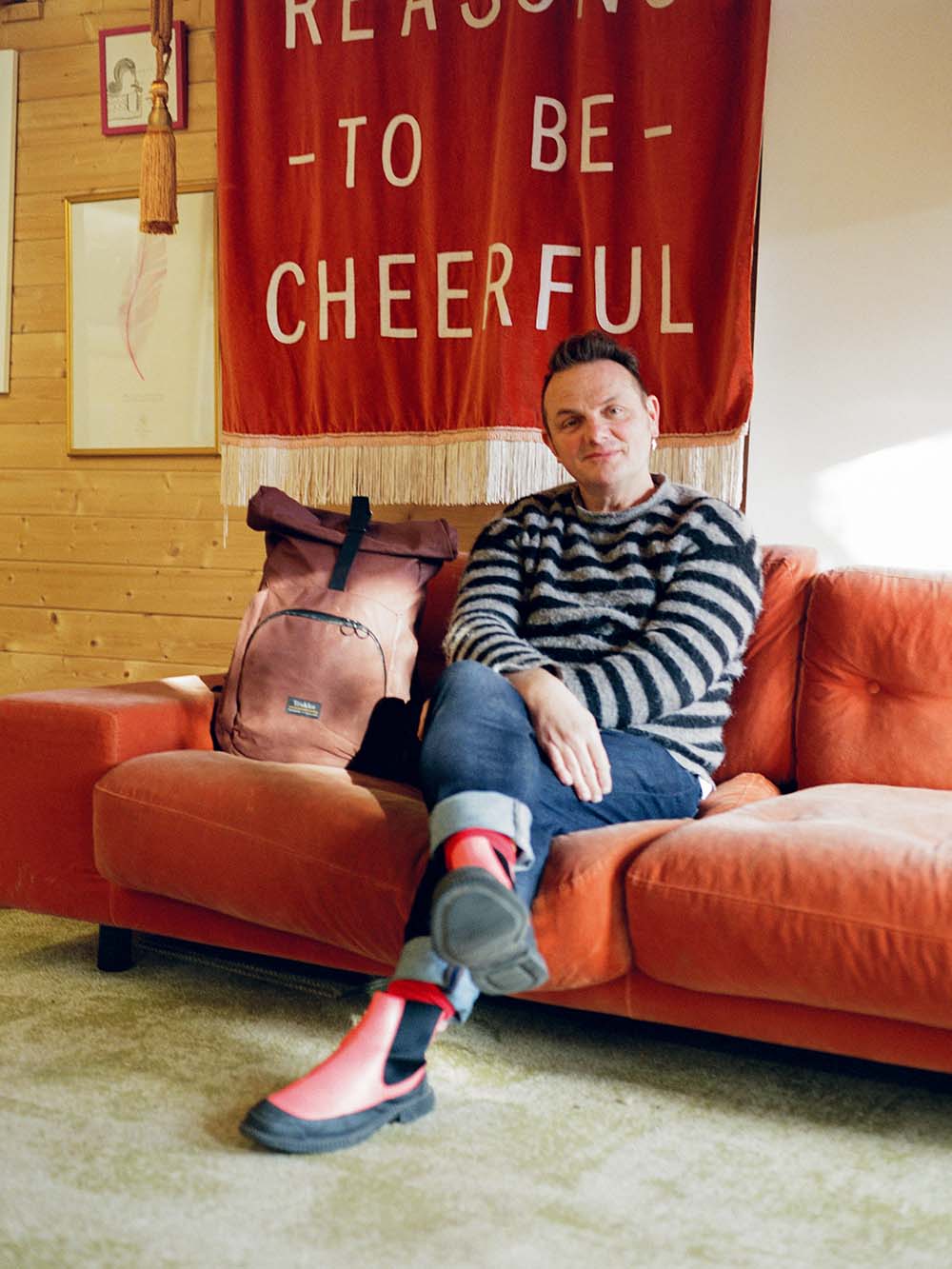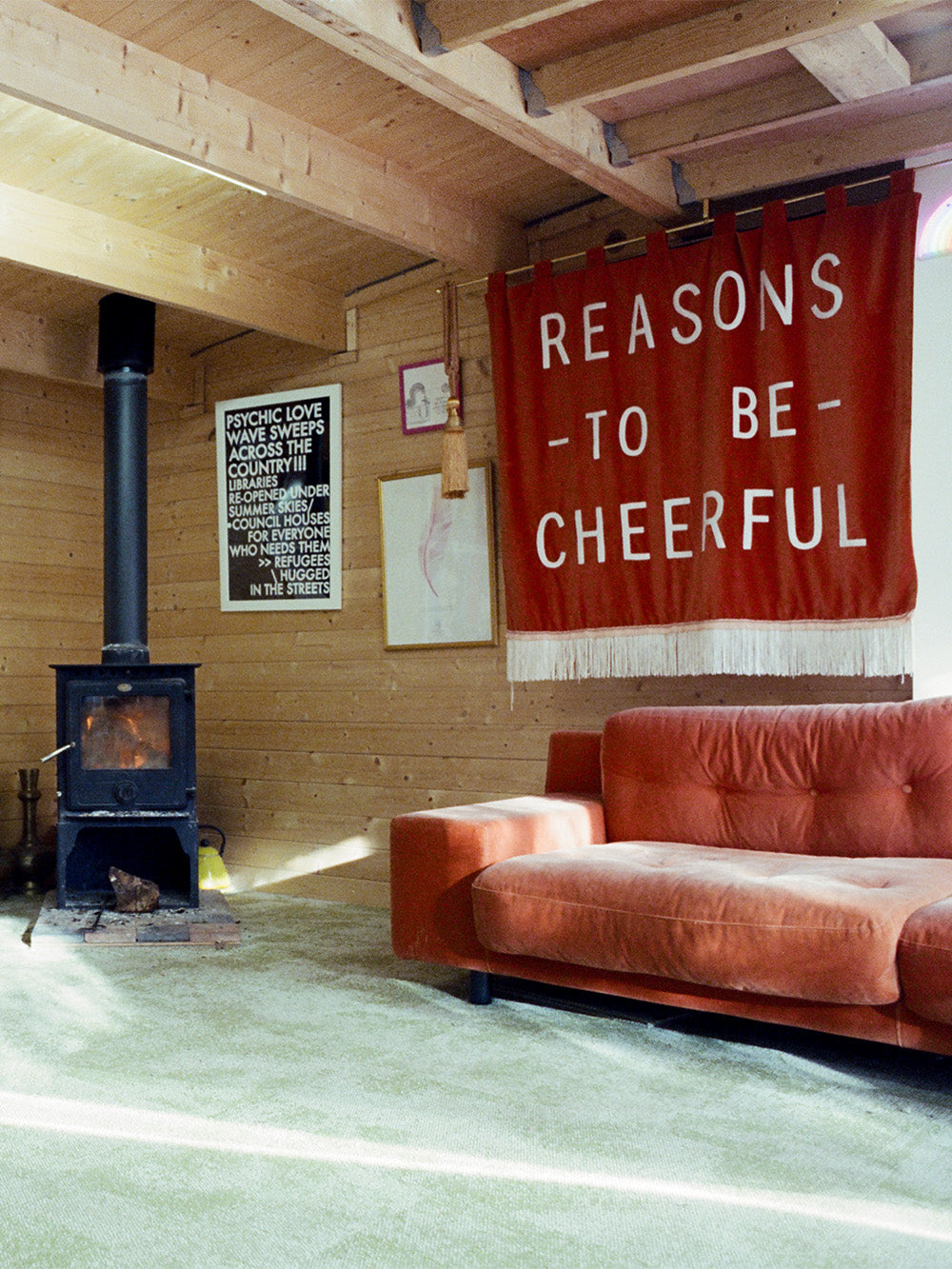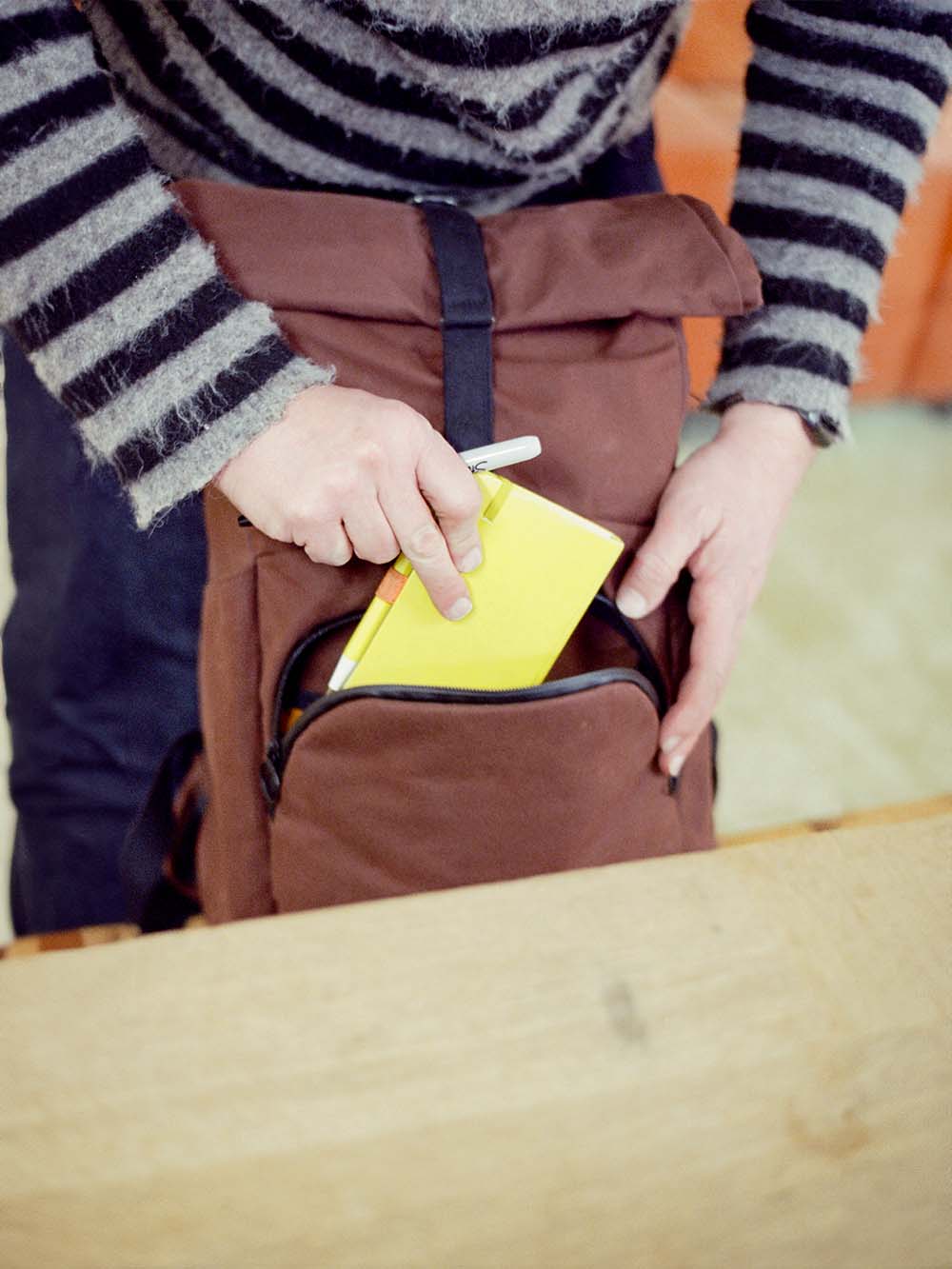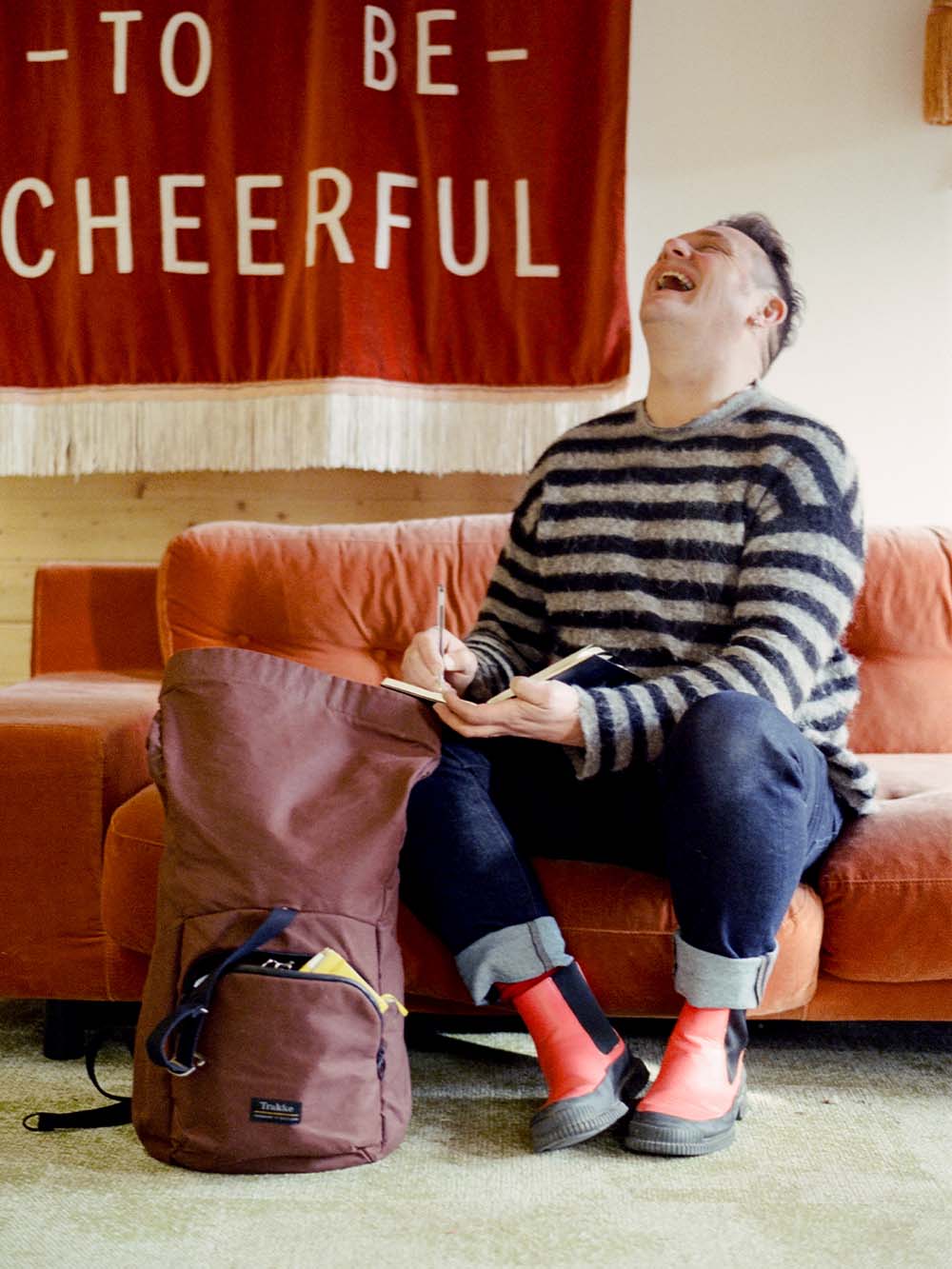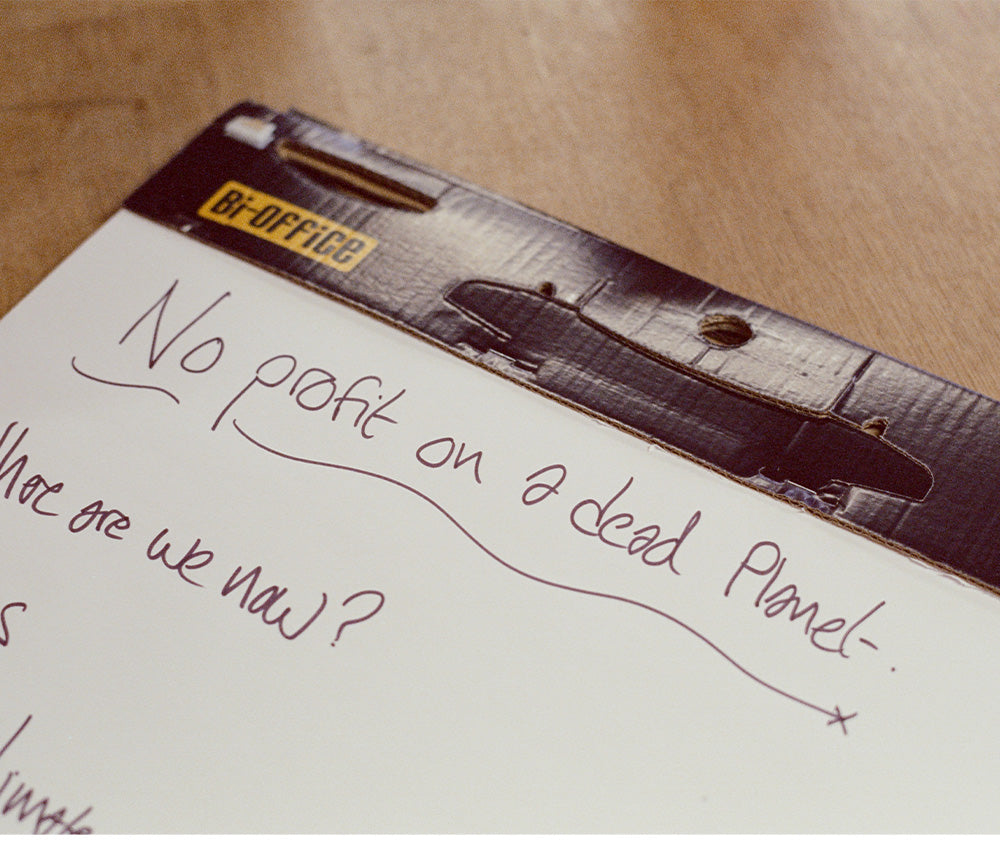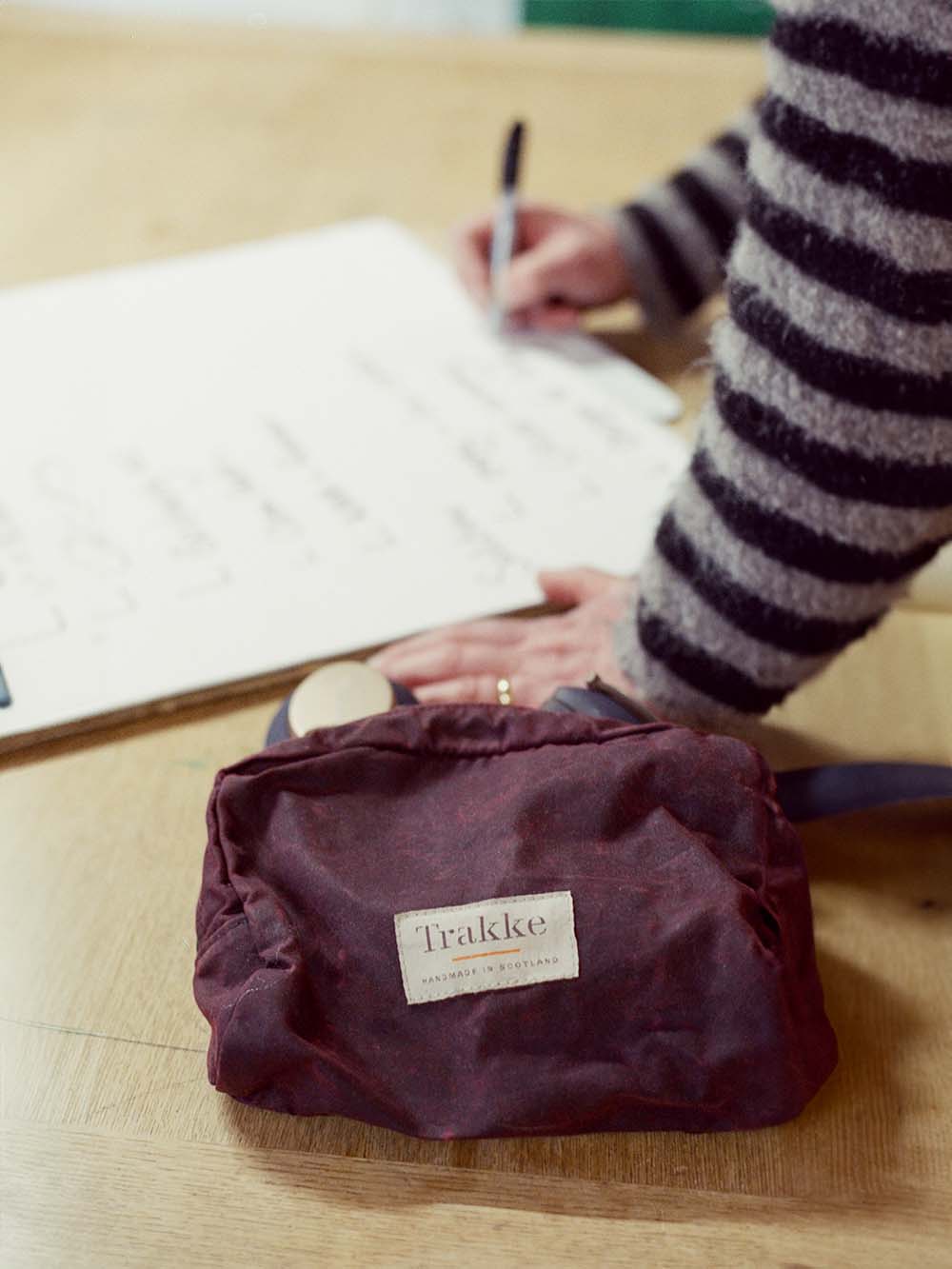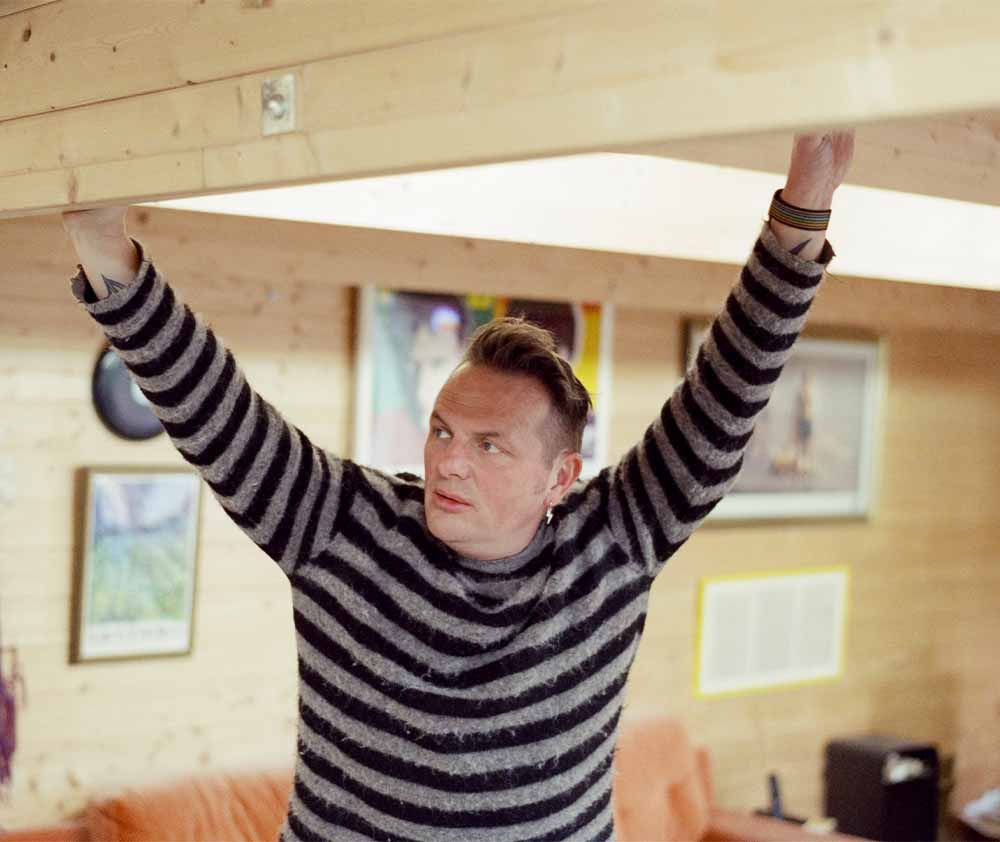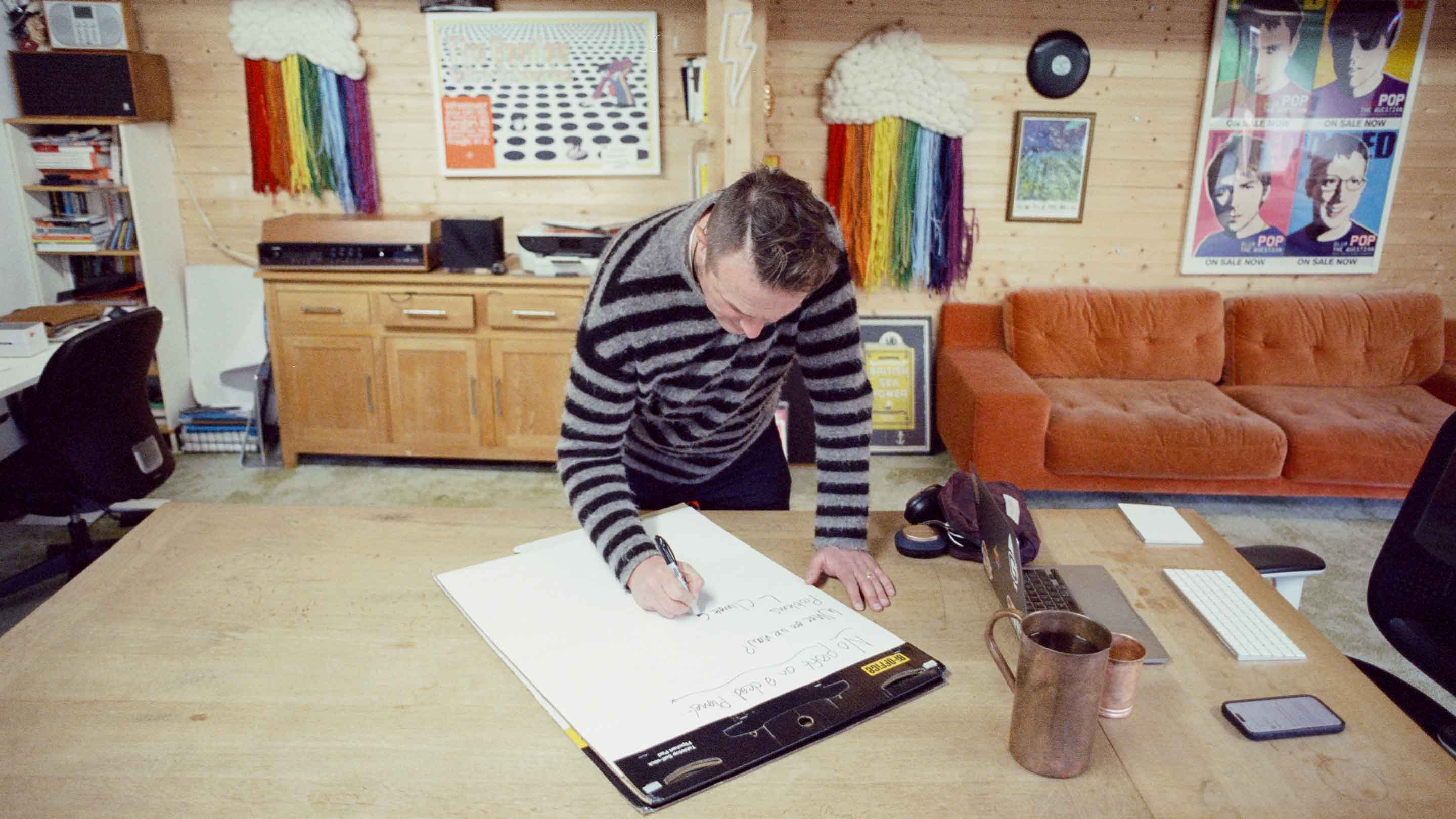
MARK SHAYLER
CUSTOMER STORIES PROJECT
We interviewed Mark in his home studio in Donisthorpe, in the Midlands.
Tell us about yourself. Where do you live, what do you do?
My name's Mark Shayler. I live right in the middle of the UK. If you spin the UK on the balance point on your finger, that's where I live, as far from the sea as it's possible to get, which infuriates me.
I live near a little town called Ashby de La Zouch, famous for Ivanhoe, the home of Adrian Mole, KP Snacks, peanuts and Hula Hoops, and McVities digestives.
That's what we're famous for around here.
What are you passionate about and what keeps you motivated?
It's really easy to forget this sometimes and replace whatever it is you're passionate about with money or success or progress through your career. I'm passionate about equality. I'm passionate about people finding their voice and using it. And I'm passionate about how we can build a better, more fair world. And that manifests for me initially, in terms of sustainability.
The global North have had all of the spoils of sustainability and the global South are paying the price for that. And that's not fair. The wealthy have had all of the spoils of the conversion of raw materials into products and then into profit. And the poor people of the developed world have given their lives for that. I think that's dreadful, that really fires me up.
I want to find those voices and stories that bring those things to life in a "political with a small p" way.
Which Trakke bags do you have and how do they fit into your life?
I have a small messenger bag - which if I'm travelling to London and I don't wanna carry much stuff with me - has my iPad, keys for my bike and a battery to charge everything. Occasionally I carry a burrito roll of clothing, which I only discovered because of Trakke. I watched Alec roll his clothing into a burrito — t-shirt, pants, socks — using the socks to wrap around the edge and to pull it all in. I have never packed anything else any other way since I saw it. So I owe Alec a massive thank you for that.
The other Trakke bag that I have and use most of the time is my larger rucksack. It's marvellous and I have it in the rustic port colour.
I'd been in search of the perfect rucksack for a long time. It needs to be light when empty. Many great rucksacks are just too heavy when they're empty. It needs to be able to hold three clothing burritos. It needs to have a separate pouch for a laptop so I don't have to mess about getting anything out of the main body of the rucksack. Ideally, it has an external pocket for passport, keys, and earphones.
The Trakke bag that I found does all of that perfectly.
I also have a smaller rucksack, which I use if I'm hiking or when we go on holiday. That's the one I pack empty and then use as a day pack.
So I've got three Trakke bags and they're all brilliant. They do the job they're designed for perfectly, no more, no less.
"To back a company that literally has your back, who will repair the bag until it's finished… that's very special."
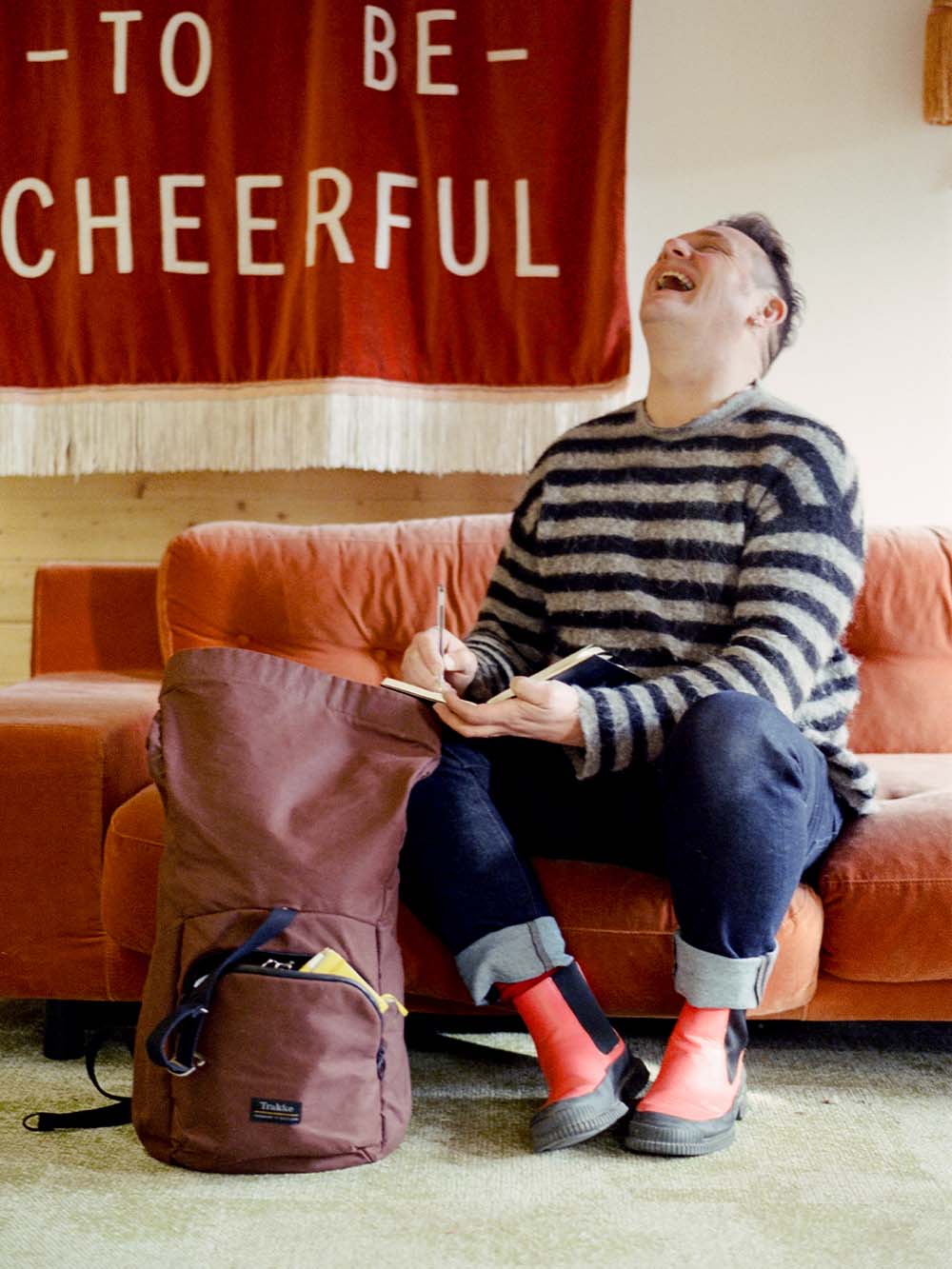
What's important to you when it comes to adding something like a backpack into your everyday routine?
If I'm adding a new bag into my everyday routine, it needs to make something better.
There needs to be something else that it's giving me. Now, that something can be functional, a different way the buckle works or a better way of it being more stable on my back when it's full and I'm on my bike. That something can be emotional. That something can be philosophical.
I'll use that bag for everything. I'll love that bag.
What I love philosophically about these bags is that everything is sourced with care. And every single person who receives a fraction of the money that I pay for the bag deserves it and is making the very best out of the materials that they can get their hands on. And every single one of those materials makes the bag last longer, and perform better. And there's no doubt about it, they look absolutely amazing, They're beautiful bags. If I can do good with my money, then that's a job well done.
To back a company that literally has your back, who will repair the bag until it's finished, who uses the lightest touch materials possible, who source those from people they know… that's very special.
This is a very low-carbon footprint bag. I know that because I worked with Trakke and I calculated it. It's a very, very good bag because the supply chain is made of really great people.
Tell us something you're looking forward to in the year ahead or something you're working on that you'd like people to know about?
Nicola and I have reached that age — we're 54, the kids range from 28 down to 19. Our granddaughter is nearly four. We're in that position now where we can move house and spend a bit more time away. Apart from the sausage dogs, we can pretty much do what we want. So I'm really looking forward to spending a bit more time away, although I love this garden and this studio and this place.
I've got some amazing clients who I'm really looking forward to working with. I'm really enjoying the work that I'm doing at the moment. It's shifted back from innovation to sustainability again, and I think it's fabulous and I'm enjoying that enormously. That's given the Earth a voice. That's a really powerful thing.
Aligned with that, I've got a new book due out on sustainability in business. It's called "You Can’t Make Money from a Dead Planet" and I'm trying to reposition "enterprise" as a force for good, not just for profitability. The word "eco" comes from the Greek word "oikos" and it means house, it means home. And it sits in economy, but it also sits in ecology. One of them is about measuring and understanding what it is that you have. That's the economy bit. Ecology is about preserving and protecting, but if you want to preserve and protect it, you have to measure it.
If you're going to measure ecology, then by gosh, you have to preserve and protect it. At some point, we cleaved these two words apart and we've put them in opposition to each other.
I think the money that you spend are your most powerful sustainability tools. And we often see them almost in opposition to that. And I'm on a mission to help people understand that they can do real good..
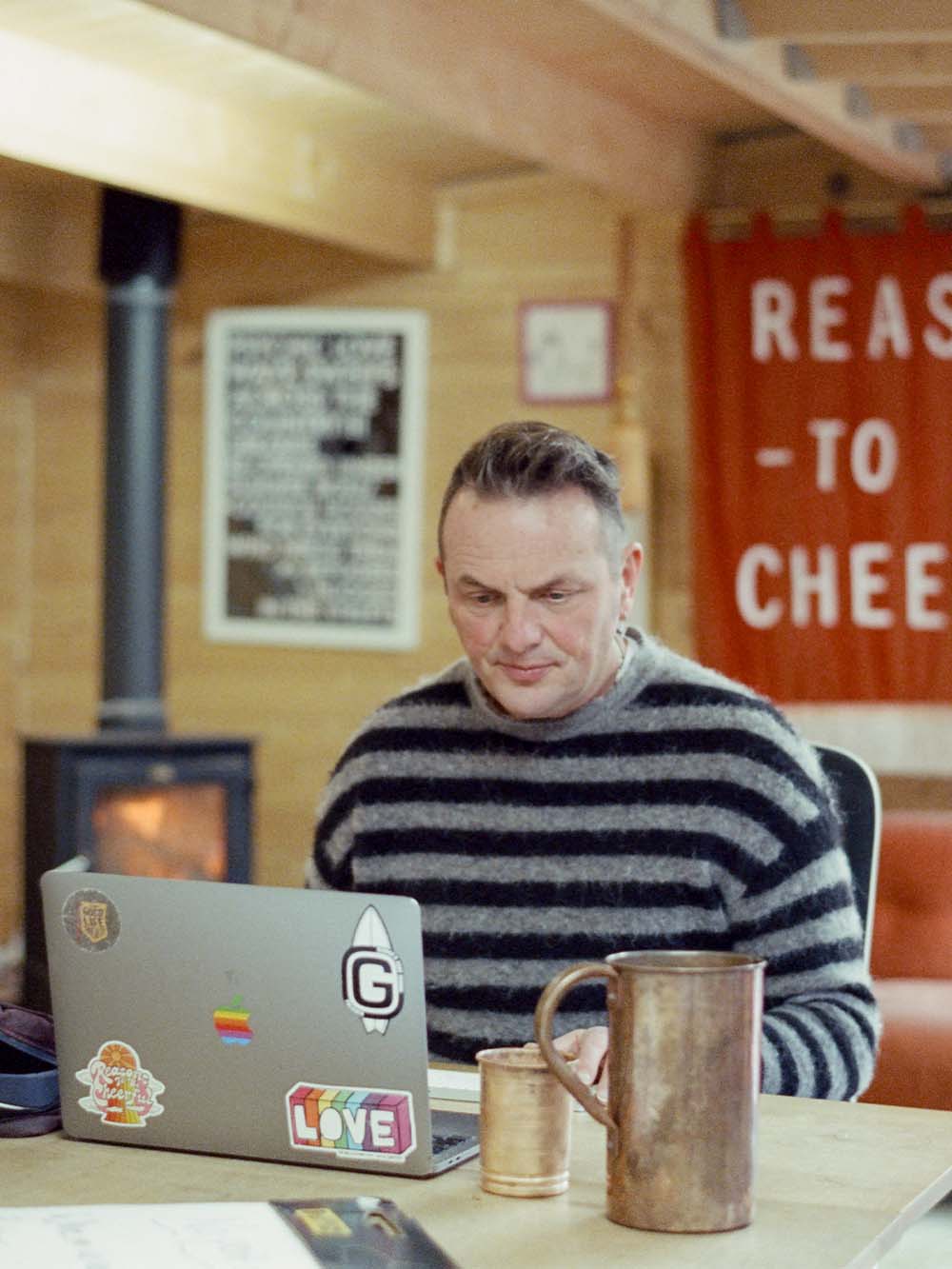
The big challenges we face are how we make more or the same money, but by selling less stuff, moving towards a circular economy, a service economy; how we begin to move toward business models that reward beautifully designed things that last a long, long time and that you are really happy to pay a lot of money for.
And the challenge to that is democratising it. So if I'm poor — and poverty is nothing to romanticise, I've been there, it's absolutely horrible — I can't afford an expensive bag, pair of jeans, or pair of shoes. So I buy a cheap bag, pair of jeans, or pair of shoes, and they last less-long. And I end up paying more over 10 years than I would've if I'd bought something that lasts a long time and where all that money is spent well.
So the challenge we have is how we reformat business models so that the companies that make amazing products can earn the same money, but over a longer period.
The way that we finance and the way that we make the money work is the barrier to true environmental innovation. And that's where I want to spend my days. That's the work that I'm absolutely driven to solve.
Here's what Mark has been up to since the interview...
Since the interview Mark has published his book 'You Can't Make Money From a Dead Planet" and has welcomed the arrival of his new grandaughter.


